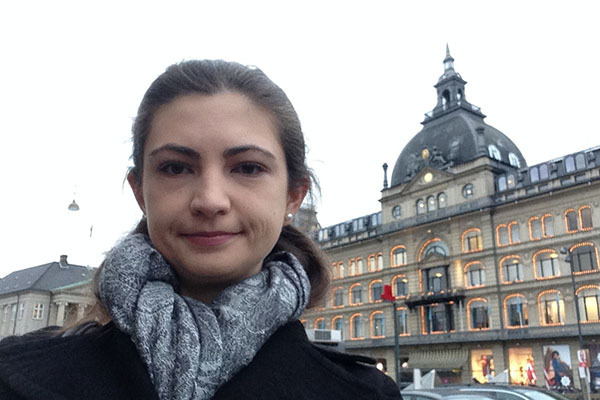
Manuela Fernández Pinto is a doctoral candidate in the History and Philosophy of Science program. The Nanovic Institute awarded Manuela a Graduate Professional Development Grant to present at a conference at the University of Copenhagen. Manuela recently wrote about her experience:
Thanks to the Nanovic Institute’s Graduate Professional Development Grant, I had the opportunity to present the paper “The Special Role of Science in Policy Making: A Taxonomy of Problems and Prospects,” co-authored with my advisor Professor Janet Kourany, at the “International Conference for the Special Role of Science in Liberal Democracy,” which took place at the University of Copenhagen, November 21-22, 2013
In the paper, we examined the case of breast cancer research, in particular with respect to policy debates regarding the effectiveness of mammography screening. Given that Scandinavian scientists have been central players in the development of breast cancer research we had a particularly well-informed audience to discuss our views. In fact, we had a lively debate after the presentation of the paper, which encouraged further discussions on the topic. A couple of participants were also interested in reading a longer version of the paper and in giving us future feedback.
In addition, the conference brought together an international group of highly qualified philosophers of science and political philosophers, whose expertise deals with the political dimensions of scientific knowledge. Since my main area of research is the social dimensions of scientific knowledge, this was a unique opportunity for me to meet and talk to international experts on my area. In particular, I took advantage of this opportunity to talk to Professor Martin Kusch from the University of Vienna, with whom I have discussed the possibility of doing a postdoctoral project. I sent him a draft of my project a week before the conference, and we had the opportunity to meet during lunch and dinner, and discuss the viability of the project and how to improve the draft. I was also able to learn more about the academic environment at the University of Vienna and the research opportunities that would be available for me in case I pursue this research. I found the overall experience very rewarding.
Finally, this conference gave me the opportunity to work closer with my dissertation advisor Professor Janet Kourany. This paper stems in part from my dissertation, but is also my first academic project beyond the dissertation research. Working on this paper with Prof. Kourany gave me a privileged experience of what academic collaboration will look like after completion of my Ph.D. The valuable feedback we received at the conference will certainly contribute to strengthening our main argument. We expect to keep working on this project towards article publication.
Even though this was a very short trip—my Schengen Visa only allowed me to stay four days in the European Union—I certainly appreciated the opportunity to participate in a conference that represents the type of politically and socially engaged philosophy of science that is being done in Europe today—a very different scene than in the US—and to share my points of view both with local and international experts. I am very grateful to the Nanovic Institute for European Studies for supporting me. Since I have already exhausted departmental funding for international travel, I could have not traveled to Copenhagen without the Nanovic’s financial support.